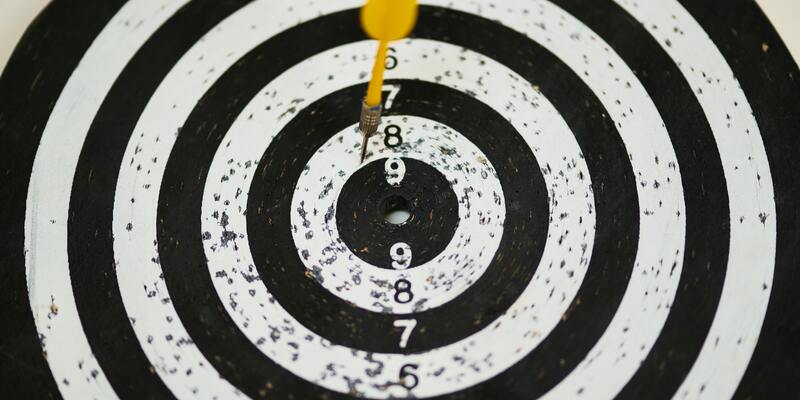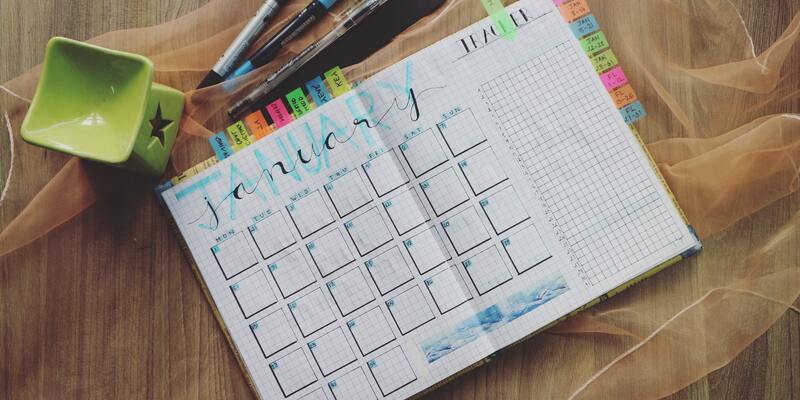Writing blocks: 12 ways to overcome writer's procrastination

Writer's block – the curse of novelists and knowledge workers alike. Here's how to overcome a creativity lean spell…
By Eleanor Hope-Jones
•
Oct 24, 2022
Regardless of whether you have a writing career or you’re a data engineer, we all have to write something long, difficult and wordy at some point.
So when writer’s block strikes at the moment you need creativity most, this particular kind of procrastination can even reduce professional writers to tears.
Whether you’re a short story writer, in the middle of your next science fiction epic or just need to get that report done for work, we want to show you some of the best ways to start putting words on paper.
As well as what the world’s most famous authors have to say about their experiences of writer's block, and how to create a daily writing routine to keep you at tip-top productivity.
We do spoil you.
What is writer's block?
Writer's block is simply the experience of being unable to write. You may desperately want to put pen to paper or fingers to keyboard.
But something is stopping you.
Writer’s block has stopped many writers in their tracks, but successful writers know how to get back on track so their block only lasts a few hours or days rather than weeks or months.
We’ve distilled some of their wisdom here to get your creative juices flowing.
Four ways to overcome writer’s block
When it comes to writing habits and techniques there are a lot of different schools of thought. So alongside our techniques here’s some advice: take what resonates and leave the rest.
Any form of procrastination is a problem with managing your emotions
Find the cause of the block
It’s hard to solve any kind of procrastination without first understanding the root of it.
Remember any form of procrastination is a problem with managing your emotions. So ask yourself:
What am I feeling right now? Where is this sensation in my body?
Why might I have this feeling about this particular task?
Am I passionate about what I’m writing? Do I believe in this piece of work?
For example, you might notice that you’re actually feeling a little bit afraid, and it’s presenting as an anxious tightness in your chest. You may be feeling that because the last piece of writing you did was really well received and now there are higher expectations of your work.
From this informed place, you can start to address those feelings by reassuring yourself that the quality of your work does not define your worth. You can also try and lower your expectations by reminding yourself it’s the first draft.
What's your procrastination type?
Writer's block and burnout
It’s important to make a distinction between writer's block, when there are things you want to write but can’t get the words down, and burnout, where you don’t have any creative inspiration left.
If when you interrogate your feelings your answers come back with tired, exhausted, empty or any other similar words consider taking a different approach. Try taking the pressure off of yourself to write and set aside time to rest, play and find inspiration in the world around you again.
Take a different approach to your writing
If you’ve been trying to write something for the past few hours, (days, or weeks) then you might have become locked into one particular way of thinking. That constriction may be exactly what’s blocking you.
Try taking a step back, and writing from a new perspective. That might look like:
Starting in the middle (or even the end). Why not jump to slide 5 of the presentation or try writing the juicy fight scene in chapter 8.
If you’re working on a novel or script, try writing from a different character’s point of view
Focus on one exciting detail about the piece of work. You could write a detailed analysis or history of that detail, and see what it opens up.
Dictating your ideas and typing them up later. It worked for John Milton, author of Paradise Lost, and Winston Churchill.
Are you a gardener or an architect?
George RR Martin, author of Game of Thrones, famously writes infuriatingly slowly. You can probably put that down to his writing technique, which he calls gardening.
Here’s how he explains it:
“I think there are two types of writers, the architects and the gardeners. The architects plan everything ahead of time, like an architect building a house…
The gardeners dig a hole, drop in a seed and water it. They kind of know what seed it is, they know if they planted a fantasy seed or mystery seed or whatever. But as the plant comes up and they water it, they don't know how many branches it's going to have, they find out as it grows.”
If you’ve been writing predominantly as a gardener and don’t know where to go, try planning an outline so you have something to follow. If you’re an architect who’s planned everything out, try writing without a plan and see what grows.
Empty your brain
If you’ve been sitting at your desk trying to write for the past 3 hours without being able to squeeze out a single word, for the love of all that is productive please go outside.
Multiple scientific studies have proven that walking regularly creates new connections in the brain and improves cognition. Which may be exactly what you need when you’re stuck on a tricky writing problem.
If going for a walk isn’t an option Australian author Trudi Canavan swears by doing the washing up. Or any task that will occupy your brain, without actively filling it with more information.
So no TV, books or films whilst you’re in the writing flow!
The goal is to do something that distracts your conscious brain from the deep tricky writing problem, so your subconscious can take over.
Barack Obama wrote every single one of his books out long-hand before transferring the words over to a computer
Just write something!
Sometimes we can get so in our own heads we become our own worst enemies.
Especially if you’re familiar with the term writer's block and know it’s what you’re struggling with, or you’re a perfectionist and are trying to write it perfectly the first time.
Here are some techniques that will help you get out of your own head and get some words down:
Free write about something that’s nothing to do with the task at hand
So set a 5-minute timer and just start writing! The goal here is not the quality of your writing, just that you write everything that comes into your head in 5 minutes.
Shut your laptop screen and write long hand
President Barack Obama swears by it, having written every single one of his books out long hand before transferring them over to a computer.
If you hate writing physically you can still change your medium by writing with an online typewriter. As you can no longer delete and go backwards it forces you to go forwards and creates satisfyingly real sound effects for total immersion in your writing.
Each time you get stuck simply write “in plain English”
Then put down exactly what's in your head regardless of whether it makes sense, sounds nice or is useful. You can even flag it with a comment to come back to on your redraft. It’s amazing how much easier it is to edit a badly written sentence than write a perfect one from nothing.
Recognise that the first draft of anything is going to be average
But the first draft is only 50% of the process. It’s through editing and redrafting that you truly make a good piece of writing.
Join a Flock for free to help you relax into writing mode
Our expertly facilitated deep work sessions will help you focus and get more done than you ever thought possible.
Run on Zoom and guided by one of our expert facilitators, Flocks are unique, fun – and so effective that 88% of people who try one come back for more.
Four famous writers on overcoming writer’s block
To put your mind even more at ease, let’s look at some famous authors and their relationship with writer’s block.
You didn’t think they got away with years of writing without getting writer's block, did you?
Virginia Woolf and writing through the pain
Virginia Woolf is best known for championing stream-of-consciousness writing, which she used in her iconic novels Orlando and Mrs Dalloway. But did you also know she suffered from dark periods of depression that caused writer's block?
Virginia got through it by writing about why she can’t write. In her 1921 diary entry, she wrote: “I ought to be writing Jacob’s Room; and I can’t, and instead I shall write down the reason why I can’t—this diary being a kindly blankfaced old confidante.”
Jacob’s Room was published 18 months later.
Neil Gaiman and the need for some space
Neil Gaiman, the popular English author of fantasy classics like American Gods, Stardust and Good Omens, tries to forget about it.
Gaiman views writer's block as a sign that he’s been writing too much, so prints off a draft, leaves it for a few days then comes back with a red pen.
Agatha Christie and the power of imagination
No one has outsold British Crime legend Agatha Christie apart from the Bible and Shakespeare
(and Shakespeare never wrote a novel, only plays.)
Christie’s technique for overcoming writer's block and procrastination was relying on her imaginary characters. She used her own characters to keep her amused, motivated and inspired any time she felt blocked.
Which is the best argument for writing compelling characters that we’ve ever seen.
Stephen King and his legendary writing routine
If there’s one word we’d use to describe Stephen King, it’s prolific. He’s written over 64 novels, 200 short stories and 5 non-fiction books.
So if there’s a man whose writing routine you want to look into - it’s this one.
King speaks of the importance of writing every day regardless of whether you feel like it or not. Every morning he wakes up, has a glass of water or cup of tea, takes a vitamin, then sits in the same seat, at the same desk and starts writing between 8 am and 8.30 am.
He has a daily writing goal of two thousand words and usually meets it between 11.30 am and 1.30 pm. King swears by the power of repetition and routine as a way of soothing the mind into a dream-like state that’s perfect for his blend of fantasy thrillers.
Speaking of writing routines…
How to create your perfect writing routine
Everyone is different and what may be a perfect writing routine for you would be an awful writing routine for someone else.
But from analysing and comparing the writing routines of various famous authors, we’ve got a few recommendations for you.
Create repetition in your writing habits
Whatever routine you come up with, do it until you don’t have to think about it. Studies have shown motivation is like a glass of water: Each time we use it we pour a little bit of the water away.
But if we have a routine we are really familiar with, we don’t have to use as much motivation to execute it.
So if you write every morning at 7.30 am as soon as you get up, every morning your brain will have to use less and less energy to get the same cup of tea, sit in the same place and open the same documents.
That’s all energy you can save for writing the actual words…
Keep moving your body
Award-winning American author and college professor Susan Shapiro swears by exercise as a way of motivating yourself to write. She makes all of her students work out with her whilst discussing their book outlines, and believes all the students who work out with her get published like mad!
Meanwhile, author Haruki Murakami dedicates his afternoons to either running for 10km or swimming for 15,000 metres after writing in the morning, and Charles Dickens is said to have walked for 20 miles a day!
Need we go on?
Make time to find inspiration
Julia Cameron, famed teacher, artist and author of The Artist’s Way, implores her students to take themselves on an artist's date once a week.
What’s an artist’s date I hear you ask? Julia describes it as:
“A weekly expedition to explore something that enchants or interests [you]. It may be a trip to a bird store, to a children's bookstore, to a flower shop, to a museum. It does not need to be ‘high art.’
“In fact, if we think of our creative self as being an inner youngster, we will be on the right track.”
You might be thinking, that’s all well and good for artists and authors, but I just need a routine to write my weekly report.
But you need inspiration for any kind of writing, even the most mundane kind. So try taking yourself on a weekly artists’ date, and see what happens next.
Think of your creative self as being an inner youngster, and you'll be on the right track.
Find pockets of time to write when the rest of the world is sleeping
Have you noticed how often famous writers talk about writing in the morning? Often alluding to the crisp quiet hours between 4am and 7am before anyone else is awake (or there to distract you).
We’re not saying you have to get up at 4am, but consider whether you could start your day a little earlier before anyone can distract you from your deep work.
On the other hand, you could be a night owl.
Barack Obama describes his writing routine as between the hours of 10pm and 2am once everyone else has gone to sleep.
Try a Flock for free to start building your writing schedule
FLOWN runs hours of deep work sessions every weekday from morning to night. Flocks are digital co-working spaces, designed to free you from distraction and get more done. Try it out!














